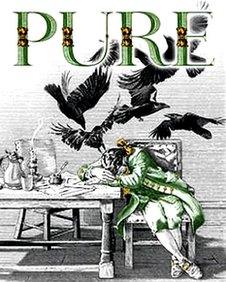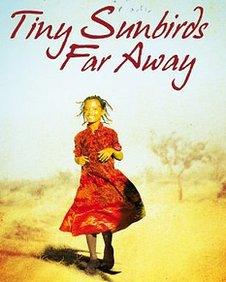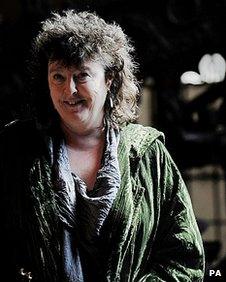Close-up on the Costa winners
- Published
This year's Costa Book Awards presented a diverse field of winners, from established writers like poet laureate Carol Ann Duffy to newcomer Matthew Hollis, who took the biography prize.
The BBC's Nick Higham takes a look at the authors who took the top honours.
The winner of the Costa prize for best novel, Andrew Miller's Pure, is the work of a highly professional novelist at the top of his game. It's his sixth novel and, like his first two, it's set in the 18th century - in this case Paris in 1785, just four years before the Revolution.

Andrew Miller's novel is set in 18th Century France
A young provincial engineer, Baratte, is instructed to disinter the hundreds of thousands of bodies and bones in the congested medieval cemetery of Les Innocents in the heart of Paris, and to demolish the neighbouring church.
The cemetery is so full that its stench permeates the entire neighbourhood, tainting food and drink; you can even smell it on the locals' breath.
It's an obvious metaphor for the rotten state of the French body politic in the dying years of the Ancien Regime, and there are plenty of hints of the chaos to come as modern-minded men seek to purify the state.
One of them, the amiable and humane Dr Guillotin, even comes to observe the work at Les Innocents. The socially-uncertain Baratte, too, likes to think of himself as an enlightened citizen of a more rational future.
But this is also a gripping and grotesque tale of murder and suicide, seduction and madness. It is short and enthralling enough to be read in a day, written with great elegance, which brings the sights, sounds, smells and even tastes of life in the 18th Century to vivid life.
Christie Watson can't match Andrew Miller for experience, but Tiny Sunbirds Far Away, winner of the first novel prize, is an astonishingly assured debut from a former nurse without an A-level to her name, who had barely written anything before she was 30.
The book is set in the chaotic, oil-rich and violent Nigerian delta, where the water is polluted and the air is acrid with the smell of burning, where corrupt local politicians are in the pay of foreign oil companies and gangs of heavily armed "boys" roam the villages terrorising the locals.

Tiny Sunbirds Far Away is the debut novel by former nurse Christie Watson
The story is told through the eyes of 12-year old Blessing, uprooted from her comfortable middle-class lifestyle in Lagos after her father walks out on her mother and the family goes to live with her grandparents in a rural compound.
The dominant figure in the young girl's new life is her grandmother, a traditional village midwife who takes on Blessing as an assistant birth attendant, a role in which she learns not only about childbirth but about the genital mutilation practised on young girls.
Writing through the eyes of a child enables Watson (who is herself English, though her husband is a Nigerian-born Muslim, and she has visited Nigeria often) to overcome and even make a virtue of her outsider status.
Survival tale
Blood Red Road by Moira Young, winner of the children's book award, is also a first novel and one by a writer with a background as unexpected as Christie Watson.
She started out 25 years ago as an actress and dancer before retraining as an opera singer, living and working in Canada (where she was born) and in the UK (where she now resides).
Blood Red Road is a breathless, thrill-a-page yarn aimed at teenagers and set in a post-Holocaust dystopia where the survivors talk like 19th Century hillbillies and cling on to life amid the wreckage of an earlier civilisation.
The plot, in which the local "king" is in search of a sacrificial victim to prolong his power, brings to mind Mad Max crossed with Riddley Walker, Deadwood and a dash of The Waste Land.
This book's narrator is a child, Saba, a naive 18 year-old brought up on an isolated homestead who sets out on a quest in search of her kidnapped twin, Lugh.
She grows up fast, learning to survive in a violent world as well as caring for her younger sister and coming to terms with the troubling presence of a rascally young man called Jack.

The Bees is Carol Ann Duffy's first collection since becoming poet laureate
Unsurprisingly, a screen adaptation directed by Ridley Scott is said to be on the way.
Carol Ann Duffy, who has won the poetry prize, is another veteran practitioner. Unlike her predecessor as poet laureate, Andrew Motion, who found it almost impossible to write poetry while in the job, her muse has not deserted her.
The Bees, her latest collection, contains some "public" poetry of the sort expected of the laureate. The most notable example is Last Post, her response to the deaths of the last surviving veterans of the Great War, which is a tribute both to the war dead themselves and to First World War poets like Wilfred Owen.
In the poem she imagines "if poetry could tell it backwards", rewinding history to bring the dead back to life.
But there are also intensely personal poems like Water, about the death of her mother; and playful writings, like a sequence of haiku in praise of whisky or the poem called Oxfam which simply lists merchandise and prices, with a brief gloss: "That jug, 30p, to fill with milk. That mirror, £5, to look yourself in the eye. A commemoration plate, 23 July 1986, marriage of HRH Prince Andrew and Miss Sarah Ferguson, £2.99, size of a landmine".
Bees thread and buzz their way through many, though by no means all, of the poems in the book, sometimes as a fleeting metaphor, sometimes as the subject. And many of the poems reflect Duffy's love of wordplay and names: John Barleycorn, a version of the old English folksong in praise of ale, is turned into a celebration of traditional English pub names.
Another poem that relies on names for its effect, The Counties, ends with a quotation from another of those Great War poets, Edward Thomas.
Thomas also happens to be the subject of Now All Roads Lead to France by Matthew Hollis, winner of the biography prize.
Edward Thomas is a hard man to like. He was depressive and often deeply unhappy, a literary hack who spent almost 15 years churning out travel books, essays, reviews, anthologies and biographies to support a wife and children he often seemed to treat with contempt. He was deeply uncertain about whether he should volunteer to fight when war broke out in August 1914.
But sometime late in November or early in December 1914, he sat down to do something he had never done before and wrote a poem.
Hollis, himself a poet, uses Thomas's notebooks to show us how he did it, and how he then went on to compose many more (one a day for a while).
He also shows us what prompted this remarkable turnabout and, in particular, the influence of Robert Frost, one of the most popular American poets of the 20th Century, with whom Thomas formed a close bond when Frost brought his family to Britain in 1913.
And he shows us why Thomas's poetry was different from, and so much better than, the sometimes self-indulgent versifying of his contemporaries, the self-styled Georgian Poets.
Indeed, Thomas forged a new, more direct way of writing which foreshadowed the work not only of fellow war poets like Owen and Siegfried Sassoon but of later writers like WH Auden.
But, though he wrote a number of poems about the war, Thomas never wrote about the experience of the trenches. He volunteered to serve in the Royal Artillery, first in the ranks, later as an officer. Arriving at the front he found poetry impossible. Barely two months after reaching France he was killed on Easter Monday 1917 near Arras.
Nick Higham will be interviewing all five Costa prize winners for the BBC News Channel and the BBC News Website in the week beginning 16 January.
- Published3 January 2012